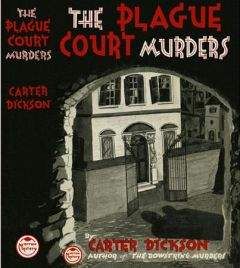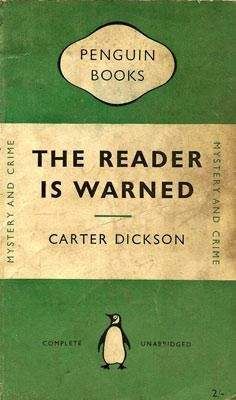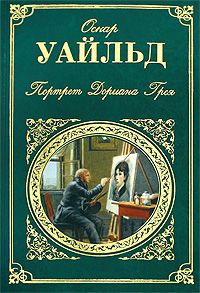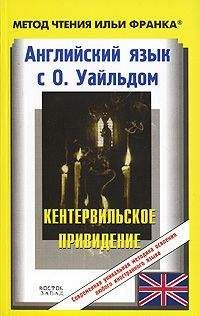John Carr - The Plague Court Murders

Помощь проекту
The Plague Court Murders читать книгу онлайн
"Do you know what I was readin' between the lines, and why good old Glenda took such pains to win him over so he'd do anything she liked? By that time she was beginning to realize Darworth's little game. Darworth purported to be bleeding the Benning circle, and handling the Plague Court matter for their mutual benefit; but Glenda knew all about the Latimer girl, so she determined to-"
"Beat him to the punch, eh?" said Halliday bitterly. "Nice little girl. Ha. Just in case he tries to shove arsenic in her coffee, she'll return the compliment and collect two hundred thousand.... Good. Marion should hear all this. It'd please her to think----"
"No offense, old son," said H. M. "But that's about it. Oh, y'see, she pretended to believe Darworth when he told her all this; meantime, she was pourin' out a tale of suffering into McDonnell's ears. Darworth's dominating will had forced her to do all this: why? Because she was afraid of him, because he had murdered his first wife and she was afraid he might murder her-"
"And McDonnell believed all that?" snapped Halliday. "Rot!"
"Are you sure," said H.M. quietly, "you haven't believed even rawer things in the last six months? Steady. Let me go on. Well, meantime, there was a real danger that Darworth might take it into his head to do just that: dispose of his second wife as he disposed of the first, by smothering her with a pillow and burying the remains. Glenda never could tell. Those two were playing a gentle, polite, murderous game against each other; and, if Marion Latimer had given Darworth more encouragement, he might have had a shot at it. That worried Glenda. She didn't want any hanky-panky until she could get her knife into him. Darworth never anticipated any physical attack from her; he thought the most she'd do was threaten to expose him.
"So, when Darworth got his idea of a ghost-attack at Plague Court, Glenda must have danced the saraband. `Mine enemy is delivered,' said Glenda, `into-' and the rest of it. Meantime, she twines herself round Darworth and says, 'You'd never want to hurt me, would you?' And Darworth, who had rosy visions of seein' her tucked away underground with a dose of cyanide in her stomach, pats her head and says, `Of course not.' `Good,' says Glenda, twistin' his coat-button lovingly; 'because if you did, sweetheart, it would be just too bad.'
"'Come, come,' says Darworth gently; `refrain from such language, my dear. Forget that you were brought up in a circus, and that the only Shakespearean parts you ever understood were Doll Tearsheet and Petruchio's wife. Why so?' `Because,' says she, turning up those eyes of hers-and they're damn' attractive eyes-`there may be somebody besides myself who knows you killed Elsie Fenwick.... And if anything ever happens to me-?'
"You get the idea?" demanded H.M. "She was going to scare Darworth properly, in case he should try any funny business. Probably he didn't believe her when she told him that, but he was worried. If somebody else did know it, down would come all his plans on La Latimer-excuse me, son - down would come everything; and if his confounded wife had been indiscreet, he might find himself had up on a murder charge over a dozen years old...."
"I say!" growled Major Featherton, who had been pulling hard at his mustache. "Then at my house - at my house, blast it - she has this chap McDonnell slide that message into his papers? Eh?"
"You got it," nodded H.M. "At a place, dye see, where Joseph wasn't even present! Burn me, do you wonder he was scared green? Because it would seem that one of this very circle - one of these people his plans were directed at-knew all about him, and was sardonically chuckling! It must have hit him straight across the back of the neck: one of those devoted acolytes of his was as bland and dangerous a hypocrite as himself. His immediate reaction was, `I've got to put this Plague Court hoax through as quickly as I can.' Because why? Because somebody seemed out to queer his pitch, and he wanted to make his final smash to impress the Latimer girl; but, good God, which one of 'em had put that note in? Then he had time to reflect that there was a stranger, and it was probably the stranger ... yet, when he questioned Ted Latimer about McDonnell, he got only the reply that it was a harmless old school friend. He suspected, but what could he do? I needn't tell you that McDonnell's apparently accidental falling in with Ted, his wangling of an invitation to Featherton's, was no more an accident than Darworth's death....
"And he walked straight into the trap he'd created for himself, Darworth did. You know what happened. McDonnell swears he didn't know Glenda intended to kill him. He says she told him Darworth had promised her that, if she aided him in this last piece of fraud, he would let her go. And so, night before last, there's the delirious McDonnell waitin' in the yard - not needed, not in the plot, but just in case! And you know how he was needed: ayagh, didn't it give him a shock when he saw Masters there? You'll admit he thought fast; he had to account for his presence there - which wasn't natural - so he gave rather a distorted version of the truth. You remember how he was the one, as I told you, who insisted `Joseph' was only a pawn for Darworth?"
"But why say Joseph was a drug-addict?" demanded Halliday.
"Those, my lad, were his instructions from Glenda," said H.M. dryly, "in case anybody questioned him. He didn't understand 'em then-but he understood 'em later on....”
"His account of the thing to me tonight - I wish I could reproduce it. He tells how he was nearly at his wits' end to get Masters out of the room. He wanted to urge Glenda, now that the police were there, to abandon the crazy design of the fraudulent attack. She wouldn't. In fact - d'you remember, from what Masters said? - she nearly blew the gaff herself. While Masters was there, she had the nerve to go over and make sure the boards were loose on the window of the room where she and McDonnell had been put...:'
"The boards on the window?" interrupted Halliday.
"Sure. Have you forgotten that the wall round Plague Court runs within three feet of the windows in the house? And that they're high windows, from which a good jumper could get to the top of the wall with one swing? That was how she walked round to the back of the house without leaving a footprint; she went on top of the wall. And you know what she did. She left McDonnell there while Masters was prowlin' upstairs - the whole shooting would take only three or four minutes. She and Darworth had prepared the whole scene the night before; you, Halliday, blundered in on them in your travels, and I don't know how they played ghost on you, but it seems they succeeded....”
"Meantime, somebody meshed more gears, and caused trouble for us. Ted Latimer got up and sneaked out of the other room. What happened is probably this. Instead of goin' straight through the house - he could see your light, Ken, in the kitchen where you were lookin' over that manuscript - he thought he'd escape observation if he went outside and round the house. Well, he'd no sooner got out on the steps than it entered that queer brain of his that he might be funking his duty if he didn't walk straight through the evil influences of the house, and defy them. Yah! So he turns round and goes back through the hall; and he leaves the front door unlatched.
"Now, the probable fact is that Ken didn't hear him when he passed the door of the kitchen going towards the outside. And, no sooner had he got to the door at the rear of the house - the one givin' on the yard-then he saw ... well, what?
"We'll never know precisely that; the boy's dead, and Glenda never told McDonnell. It's most probable that he saw `Joseph', in the light of the fire in the window, climbing down from the roof on the window with the gun and silencer in his hand. A silencer, you know, isn't altogether silent; it makes a noise as though you cupped the palms of your hands and brought them together quickly. Now Ted was in a state to see evil spirits; he may even have tried to convince himself that that's what he did see; but it wouldn't quite wash....
"He'd keep quiet, and determine his line. But Glenda saw him in the doorway, and he was marked from that minute. She wasn't sure he'd seen her, but it must have l been a horrible moment.
"In the interval, what has happened? Masters is coming down from upstairs. When he first went up, the wind had moved the front door, and he had closed it on the latch. Well, down he comes again.... and sees the front door open as Ted had left it. Son, if he'd gone in the room where `Joseph' and McDonnell were supposed to have been sitting-well, it would've been all up. But he sees that open door and he charges out like a maniac: to find, of course, no footprints going round the side of the house. He comes round the side of the house as `Joseph,' the work finished, is returning on the other side. He hears Darworth's moans . . . y'know, I don't really believe Darworth knew his confederate had finished him, even then, or he'd have sung out boldly.
"But young Latimer, standin' in the doorway just outside the house, heard Masters come tearin' round the side of the house; he'd heard those moans of Darworth's also. He still ain't sure what they mean - he still ain't sure of anything. But he hears Masters come chargin' round the side of the house, and he realizes that, if there's really been any dirty work, his position might be embarrassin'. He ducked back to the front room, and arrived not a second before Darworth pulled the bell-cord.
"Meantime, Glenda was back. She'd shoved the gun and silencer under a floorboard that she and Darworth had prepared in that room the night before. And McDonnell's description to me of that woman when she came in and faced him - he was laying out cards in that alleged Rummy game - is fairly revealing. He said she was flushed, and her eyes were shining. She rolled up the sleeve of her coat and (to his own stupefaction) very calmly went about her morphine alibi. 'My dear,' she said to him, 'I believe I've made a mistake. I believe I've really killed the after all.' And she smiled.
"Do you wonder he was nearly insane when he rushed out? Masters tells me he never saw a man look like McDonnell when he saw him first after that, holdin' a handful of cards like a crazy man.
"I think you know the rest. The doubtful point was: what would Ted say? You know what he did; he kept quiet, and yelled at you that it really was a ghost-murder after all. It had taken possession of him that a fake ghost-murder was better publicity than a common shooting; and he was still puzzled about it anyway, because you all swore Darworth was murdered with a dagger.... By the way, wasn't that his first question to you? 'With Louis Playge's dagger? With what?' And then he kept quiet until he announced his belief in a supernatural killing.
"The rest of it will always be pure speculation, because the only two people who could tell us how Ted Latimer was lured out to Brixton are both dead. . . . Obviously Glenda had to work very, very rapidly. Ted might change his rather volatile mind at any minute, and decide to talk. One suggestion as to what `Joseph' had been up to, and Glenda might be done for. If necessary, she was prepared to follow that boy home and close his mouth. So she got Masters to send her home---'Joseph' was very sleepy, much more sleepy than the amount of morphine she'd taken would warrant. But she didn't go home”
"And then she got the brilliant idea of her life. You know what it was. `Joseph' had planned to disappear; but what if `Joseph' were supposed to have been murdered? ... The essential thing was for her to get to Ted immediately, and spin some story that would keep his mouth closed until she lured him out to Magnolia Cottage.
"So she waited for him to go home - probably close to Plague Court. The trouble was that, although he was the second witness examined, he refused to go home afterwards; and didn't go until the crowd of them had that row, and broke up.
`But, delayed in that way, Glenda had stayed until the police subordinates themselves had gone; she was working out, even then, the details of that rather neat idea, and, while all you people were engrossed in the kitchen, there was a remarkable opportunity to pinch that dagger.”
"Which is why, d'ye see, she lost Ted at the moment; he'd stalked off in a tearin' rage. But, burn me, that woman would not be beaten. That's the damnable, amazing thing about her. She relied on her wits and her powers of inventiveness to catch him alone, in his own room - in the house where she'd of course been many times as `Joseph' - to catch him when his mind was befogged and his reasonin' not up to par - and convince him that he must meet her next day. If she delayed, if he didn't have something to convince him before the very next morning, he might think better of his resolution to keep quiet. Y'see, the police were suspicious of him; and, under press of suspicion, he'd probably have told what he knew when he came to reflect on it.”
"And what do you think she did tell him?" inquired Halliday.
"God knows. By the note he left for his sister next morning, saying he was `investigating', it seems likely that
Joseph' didn't pretend to him it was a ghost-murder; but said that if he'd come out to Magnolia Cottage he would be furnished with proof. That 'You never suspected it, did you?' seems to indicate, too, that 'Joseph' accused a member of the group; and maintained that he (Joseph) was trying to save Darworth when Ted got that unfortunate look out the back door. After all, when a man's been found stabbed, Joseph mightn't have found it difficult to persuade Ted that Joseph was innocent - because `he' obviously hadn't been in the room of the stabbing. 'A pistol? What nonsense! Your eyes were deceiving you; I was keeping watch over my patron, who was foully murdered by . . . who?' Lady Benning; I'll lay you a fiver that's the one Glenda picked. 'I was at the window; I saw it done.'
"I say, you get your masculines and feminines considerably tangled in talkin' about Joseph or Glenda; but bear with me, lads....
"What was I sayin'? Oh, yes. Now, obviously, considerable care had to be taken in spiriting away Ted. Because why? Because it must never be known that Ted's disappearance had any connection with Magnolia Cottage. If a suspicious body were found unrecognizably burned in the ' furnace, and inquiry showed Ted had been messin' about there, people's suspicious minds might say, 'Hey, look here! Is that body in the furnace really Joseph's?' "And there is where my hat remains suspended over my head in admiration of Glenda. She was canny. She didn't rush Ted out to Brixton and kill him then and there. With her knowledge of the Latimer family, she laid a really remarkable false trail. The very subtle and very neat scheme was delicately to hint that Ted had done a bunk for Scotland. He's got a mother up there; a mother not quite right in the head; if the mother says he didn't come up there, and that she's not shieldin' him, ten to one the police will believe he did and she is. And the purpose? To shift suspicion away from Magnolia Cottage until the body to be found there is accepted as Joseph's; then they can hunt for Ted until they're convinced he's skipped the country - and will believe he's guilty.
"Result - a faked phone-call, not from anywhere near Euston Station - in deliberately vague terms. If the fake Ted said straight out he was going to Edinburgh, it might be discovered too quickly he hadn't; that woman trusted to the way we'd think ... ayagh, but she did! And the ironical part of the business was that McDonnell was taken in by it: he sent a telegram to Ted's mother, and that lady replied to Marion that Ted wasn't there, but she would shield him if he did arrive.
























